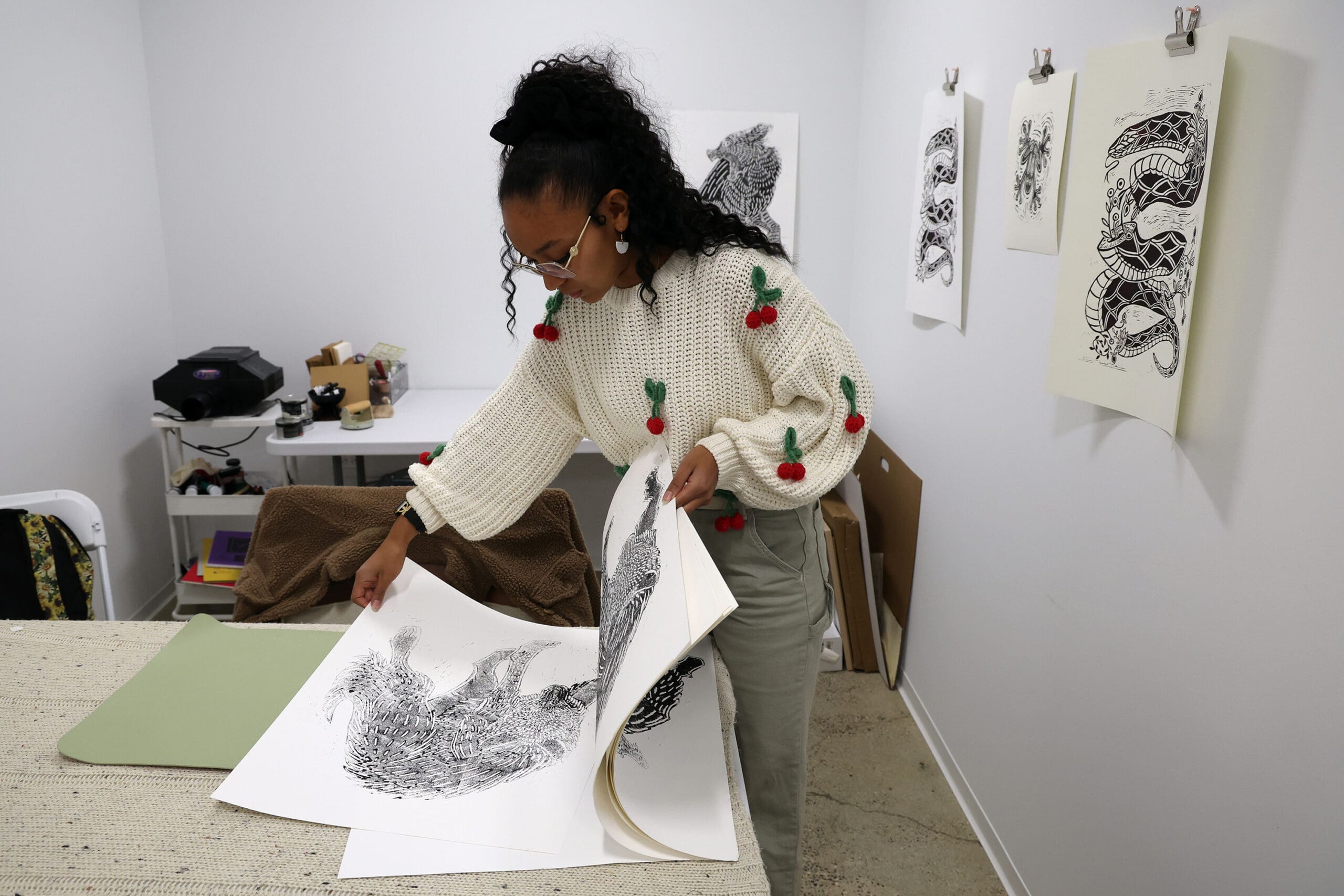By Earl Ofari Hutchinson
NAM Writer
Black on black murder rates are off the charts, capped by the recent killing of three students in New Jersey, but there are few witnesses willing to testify. The lack of witnesses helps increase the spiral of violence in poor black neighborhoods, notes NAM editor Earl Ofari Hutchinson. Hutchinson is an author and political analyst. His new book, The Latino Challenge to Black America: Towards a Conversation between African-Americans and Hispanics (Middle Passage Press and Hispanic Economics New York), published in English and Spanish, will be out in October.
A few days after veteran black reporter and editor Chauncey Bailey was gunned down on the streets of Oakland, Calif., Oakland City Councilmember Desley Brooks made a heartfelt and impassioned plea for anyone who knew anything about a killing in the city to come forth. She wasn’t talking about the murder of Bailey. A 19-year-old reportedly confessed to that. She was talking about the more than half-dozen killings that occurred in the days immediately after the Bailey killing. The victims were black and the assailants almost certainly were also black.
Oakland isn’t unique in grappling with the latest murder surge that has racked poor black neighborhoods in America’s big cities. The surge was capped recently by the shocking execution style murder of three black students in Newark, N.J.
According to FBI figures, murder rates have spiked up in New Orleans, Philadelphia, Detroit, Oakland, and a dozen other cities. As in Oakland, the victims in almost all cases are blacks, and their killers are also black. But Brooks faced a big uphill battle in trying to get residents to loosen their tongues to the police. Many are petrified at the thought of being labeled a snitch. That is the tag that some silly, misguided rappers, activists, and even some academics have plastered on those blacks who inform police about other blacks.
The resistance of blacks to provide information that could help catch killers has frustrated and infuriated police and prosecutors, increased the spiral of violence that racks some poor black neighborhoods, and deepens the fear and panic of many blacks over violent crime. Though the anti-snitch movement has been roundly denounced by many black leaders, victims of violence, and gang violence prevention groups, there is still a brisk industry in peddling T-shirts with the words "stop snitching" printed in bold letters to urge blacks to keep quiet when they witness crimes.
The long history of police-black community conflict – the fury that many African-Americans feel over the countless number of blacks who have been jailed and even dumped on death row merely on the word of a street or a jailhouse informant – is a sore point.
A study by Northwestern University School of Law’s Center on Wrongful Convictions found that in the 100 wrongful death penalty convictions of black men in the past quarter century, the majority were convicted on the perjured testimony of alleged eyewitnesses. Numerous studies have shown that blacks are far more likely than any other group to distrust the police and less likely to talk to them about criminal acts.
The fear factor also is a powerful disincentive for many blacks to provide information about violent crimes. Many are scared stiff that they would suffer retaliation if they blow the whistle on a violent perpetrator, and that the police wouldn’t protect them. These are not totally false fears. City police departments spend far less dollars on witness protection programs than the federal government does. Many blacks feel the risk is too great if they unzip their lips.
The fear of payback and the rocky relations with the police are understandable. But it does not justify a rapper or anyone else telling blacks to keep silent when they witness a crime and can provide information about it. Blacks have more to lose than any other group when they turn a blind eye to crime.
They are more likely to be the victims of homicide, assaults and other violent crimes. A murderer or assailant will less likely be caught when a victim is black. While the national homicide clearance rate is about 60 percent, the clearance rate for solving murders in some big cities is in single-digit figures. Police and prosecutors in some big cities continue to scream loudly that they can’t get people to come forth and tell what they know.
This has put poor blacks, especially young black males who are the prime targets of the violence, in even greater harms way. In Los Angeles, homicide investigators note that gang members who kill often have committed multiple killings. They are emboldened to continue their wanton violence precisely because they feel there is little chance that they will be caught, and that witnesses will not come forth to testify if they are. In New Orleans, where the murder rate has gone off the charts, the witness problem got Eddie Jordan, the city’s first black district attorney, in hot water with crime weary residents. He had to drop charges against the alleged shooters of several young blacks in a murder that made national headlines in June 2006, because a key witness disappeared.
In Los Angeles and a handful of other cities, anti-violence prevention activists have tramped into shops and demanded that the storeowners yank the anti-snitch shirts from the shelves. But pulling a shirt from a rack is one thing, getting people to come forth and tell what they know about a crime is another. When they don’t come forward, they insure the mounting carnage in some black neighborhoods such as Oakland will mount even higher.
Copyright New America Media



